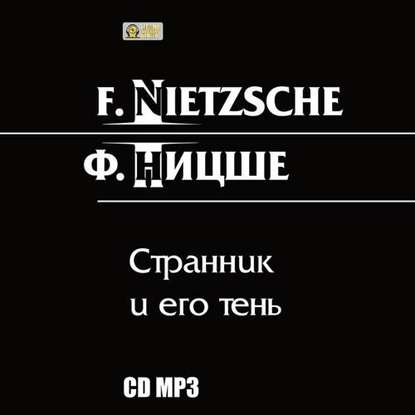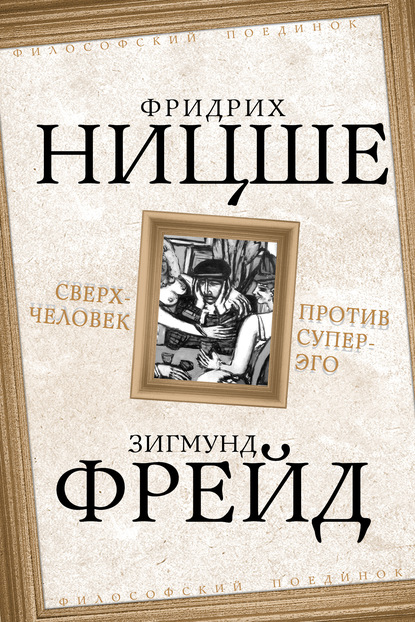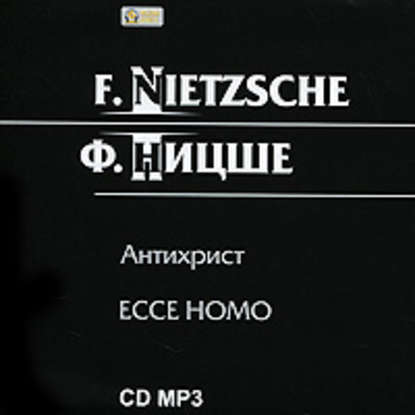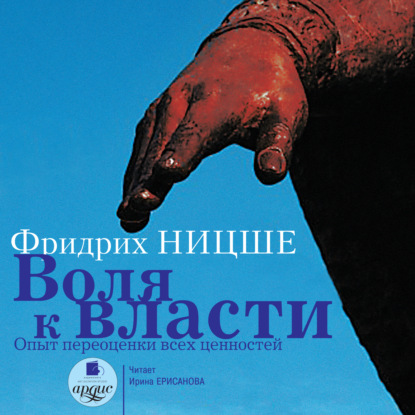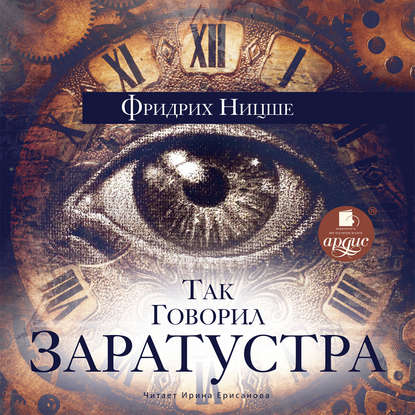
Полная версия
The Dawn of Day
Plutarch presents us with a gloomy picture of the state of mind of a superstitious man in pagan times: but this picture pales when compared with that of a Christian of the Middle Ages, who supposes that nothing can save him from “torments everlasting.” Dreadful omens appear to him: perhaps he sees a stork holding a snake in his beak and hesitating to swallow it. Or all nature suddenly becomes pale; or bright, fiery colours appear across the surface of the earth. Or the ghosts of his dead relations approach him, with features showing traces of dreadful sufferings. Or the dark walls of the room in which the man is sleeping are suddenly lighted up, and there, amidst a yellow flame, he perceives instruments of torture and a motley horde of snakes and devils. Christianity has surely turned this world of ours into a fearful habitation by raising the crucifix in all parts and thereby proclaiming the earth to be a place “where the just man is tortured to death!” And when the ardour of some great preacher for once disclosed to the public the secret sufferings of the individual, the agonies of the lonely souls, when, for example, Whitefield preached “like a dying man to the dying,” now bitterly weeping, now violently stamping his feet, speaking passionately, in abrupt and incisive tones, without fearing to turn the whole force of his attack upon any one individual present, excluding him from the assembly with excessive harshness – then indeed did it seem as if the earth were being transformed into a “field of evil.” The huge crowds were then seen to act as if seized with a sudden attack of madness: many were in fits of anguish; others lay unconscious and motionless; others, again, trembled or rent the air with their piercing shrieks. Everywhere there was a loud breathing, as of half-choked people who were gasping for the breath of life. “Indeed,” said an eye-witness once, “almost all the noises appeared to come from people who were dying in the bitterest agony.”
Let us never forget that it was Christianity which first turned the death-bed into a bed of agony, and that, by the scenes which took place there, and the terrifying sounds which were made possible there for the first time, it has poisoned the senses and the blood of innumerable witnesses and their children. Imagine the ordinary man who can never efface the recollection of words like these: “Oh, eternity! Would that I had no soul! Would that I had never been born! My soul is damned, damned; lost for ever! Six days ago you might have helped me. But now all is over. I belong to the devil, and with him I will go down to hell. Break, break, ye poor hearts of stone! Ye will not break? What more can be done for hearts of stone? I am damned that ye may be saved! There he is! Yea; there he is! Come, good devil! Come!”
78
Avenging Justice. – Misfortune and guilt: these two things have been put on one scale by Christianity; so that, when the misfortune which follows a fault is a serious one, this fault is always judged accordingly to be a very heinous one. But this was not the valuation of antiquity, and that is why Greek tragedy – in which misfortune and punishment are discussed at length, and yet in another sense – forms part of the great liberators of the mind to an extent which even the ancients themselves could not realise. They remained ingenuous enough not to set up an “adequate relation” between guilt and misfortune. The guilt of their tragic heroes is, indeed, the little pebble that makes them stumble, and on which account they sometimes happen to break an arm or knock out an eye. Upon this the feeling of antiquity made the comment, “Well, he should have gone his way with more caution and less pride.” It was reserved for Christianity, however, to say: “Here we have a great misfortune, and behind this great misfortune there must lie a great fault, an equally serious fault, though we cannot clearly see it! If, wretched man, you do not feel it, it is because your heart is hardened – and worse than this will happen to you!”
Besides this, antiquity could point to examples of real misfortunes, misfortunes that were pure and innocent; it was only with the advent of Christianity that all punishment became well-merited punishment: in addition to this it renders the imagination of the sufferer still more suffering, so that the victim, in the midst of his distress, is seized with the feeling that he has been morally reproved and cast away. Poor humanity! The Greeks had a special word to stand for the feeling of indignation which was experienced at the misfortune of another: among Christian peoples this feeling was prohibited and was not permitted to develop; hence the reason why they have no name for this more virile brother of pity.
79
A Proposal. – If, according to the arguments of Pascal and Christianity, our ego is always hateful, how can we permit and suppose other people, whether God or men, to love it? It would be contrary to all good principles to let ourselves be loved when we know very well that we deserve nothing but hatred – not to speak of other repugnant feelings. “But this is the very Kingdom of Grace.” Then you look upon your love for your neighbour as a grace? Your pity as a grace? Well, then, if you can do all this, there is no reason why you should not go a step further: love yourselves through grace, and then you will no longer find your God necessary, and the entire drama of the Fall and Redemption of mankind will reach its last act in yourselves!
80
The Compassionate Christian. – A Christian's compassion in the presence of his neighbour's suffering has another side to it: viz. his profound suspicion of all the joy of his neighbour, of his neighbour's joy in everything that he wills and is able to do.
81
The Saint's Humanity. – A saint had fallen into the company of believers, and could no longer stand their continually expressed hatred for sin. At last he said to them: “God created all things, except sin: therefore it is no wonder that He does not like it. But man has created sin, and why, then, should he disown this only child of his merely because it is not regarded with a friendly eye by God, its grandfather? Is that human? Honour to whom honour is due – but one's heart and duty must speak, above all, in favour of the child – and only in the second place for the honour of the grandfather!”
82
The Theological Attack. – “You must arrange that with yourself; for your life is at stake!” – Luther it is who suddenly springs upon us with these words and imagines that we feel the knife at our throats. But we throw him off with the words of one higher and more considerate than he: “We need form no opinion in regard to this or that matter, and thus save our souls from trouble. For, by their very nature, the things themselves cannot compel us to express an opinion.”
83
Poor Humanity! – A single drop of blood too much or too little in the brain may render our life unspeakably miserable and difficult, and we may suffer more from this single drop of blood than Prometheus from his vulture. But the worst is when we do not know that this drop is causing our sufferings – and we think it is “the devil!” Or “sin!”
84
The Philology of Christianity. – How little Christianity cultivates the sense of honesty can be inferred from the character of the writings of its learned men. They set out their conjectures as audaciously as if they were dogmas, and are but seldom at a disadvantage in regard to the interpretation of Scripture. Their continual cry is: “I am right, for it is written” – and then follows an explanation so shameless and capricious that a philologist, when he hears it, must stand stock-still between anger and laughter, asking himself again and again: Is it possible? Is it honest? Is it even decent?
It is only those who never – or always – attend church that underestimate the dishonesty with which this subject is still dealt in Protestant pulpits; in what a clumsy fashion the preacher takes advantage of his security from interruption; how the Bible is pinched and squeezed; and how the people are made acquainted with every form of the art of false reading.
When all is said and done, however, what can be expected from the effects of a religion which, during the centuries when it was being firmly established, enacted that huge philological farce concerning the Old Testament? I refer to that attempt to tear the Old Testament from the hands of the Jews under the pretext that it contained only Christian doctrines and belonged to the Christians as the true people of Israel, while the Jews had merely arrogated it to themselves without authority. This was followed by a mania of would-be interpretation and falsification, which could not under any circumstances have been allied with a good conscience. However strongly Jewish savants protested, it was everywhere sedulously asserted that the Old Testament alluded everywhere to Christ, and nothing but Christ, more especially His Cross, and thus, wherever reference was made to wood, a rod, a ladder, a twig, a tree, a willow, or a staff, such a reference could not but be a prophecy relating to the wood of the Cross: even the setting-up of the Unicorn and the Brazen Serpent, even Moses stretching forth his hands in prayer – yea, the very spits on which the Easter lambs were roasted: all these were allusions to the Cross, and, as it were, preludes to it! Did any one who kept on asserting these things ever believe in them? Let it not be forgotten that the Church did not shrink from putting interpolations in the text of the Septuagint (e. g. Ps. xcvi. 10), in order that she might later on make use of these interpolated passages as Christian prophecies. They were engaged in a struggle, and thought of their foes rather than of honesty.
85
Subtlety in Penury. – Take care not to laugh at the mythology of the Greeks merely because it so little resembles your own profound metaphysics! You should admire a people who checked their quick intellect at this point, and for a long time afterwards had tact enough to avoid the danger of scholasticism and hair-splitting superstition.
86
The Christian Interpreters of the Body. – Whatever originates in the stomach, the intestines, the beating of the heart, the nerves, the bile, the seed – all those indispositions, debilities, irritations, and the whole contingency of that machine about which we know so little – a Christian like Pascal considers it all as a moral and religious phenomenon, asking himself whether God or the devil, good or evil, salvation or damnation, is the cause. Alas for the unfortunate interpreter! How he must distort and worry his system! How he must distort and worry himself in order to gain his point!
87
The Moral Miracle. – In the domain of morality, Christianity knows of nothing but the miracle; the sudden change in all valuations, the sudden renouncement of all habits, the sudden and irresistible predilection for new things and persons. Christianity looks upon this phenomenon as the work of God, and calls it the act of regeneration, thus giving it a unique and incomparable value. Everything else which is called morality, and which bears no relation to this miracle, becomes in consequence a matter of indifference to the Christian, and indeed, so far as it is a feeling of well-being and pride, an object of fear. The canon of virtue, of the fulfilled law, is established in the New Testament, but in such a way as to be the canon of impossible virtue: men who still aspire to moral perfections must come to understand, in the face of this canon, that they are further and further removed from their aim; they must despair
Конец ознакомительного фрагмента.
Текст предоставлен ООО «ЛитРес».
Прочитайте эту книгу целиком, купив полную легальную версию на ЛитРес.
Безопасно оплатить книгу можно банковской картой Visa, MasterCard, Maestro, со счета мобильного телефона, с платежного терминала, в салоне МТС или Связной, через PayPal, WebMoney, Яндекс.Деньги, QIWI Кошелек, бонусными картами или другим удобным Вам способом.
1
The book was first published in 1881, the preface being added to the second edition, 1886. – Tr.
2
This refers, of course, to the different genders of the nouns in other languages. In German, for example, the sun is feminine, and in French masculine. – Tr.
3
M. Henri Albert points out that this refers to a line of Paul Gerhardt's well-known song: “Befiel du deine Wege.” Tr.



